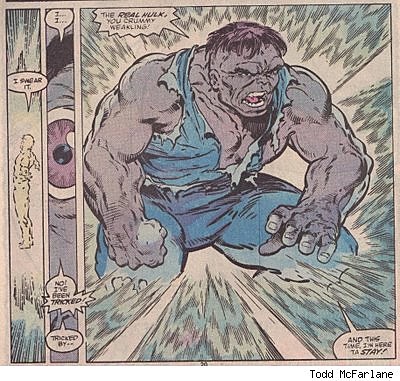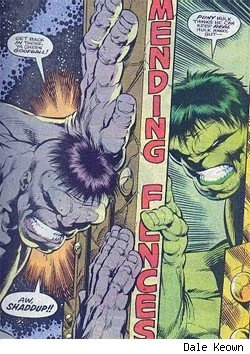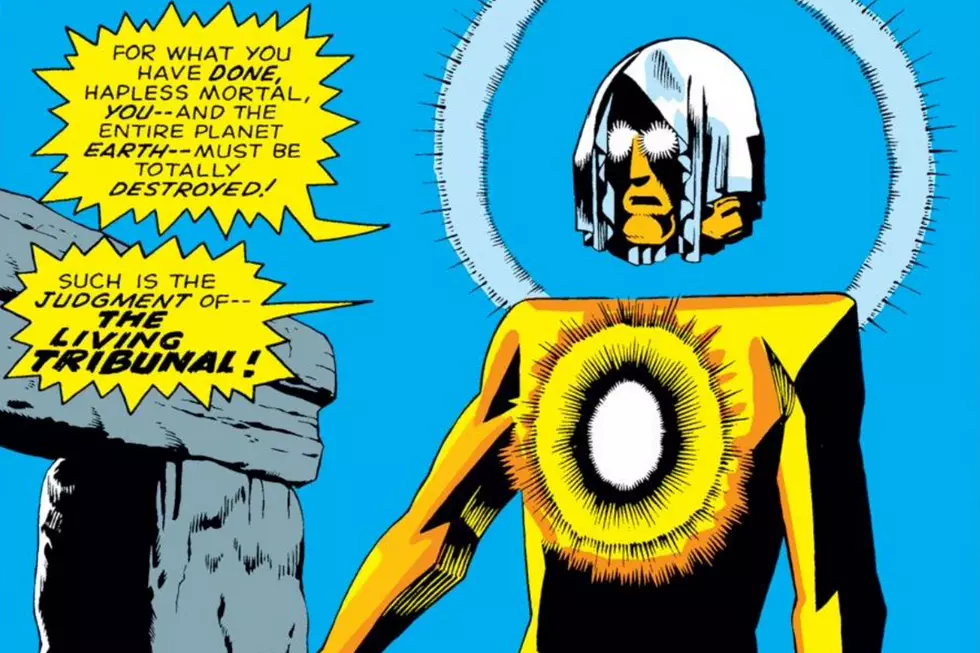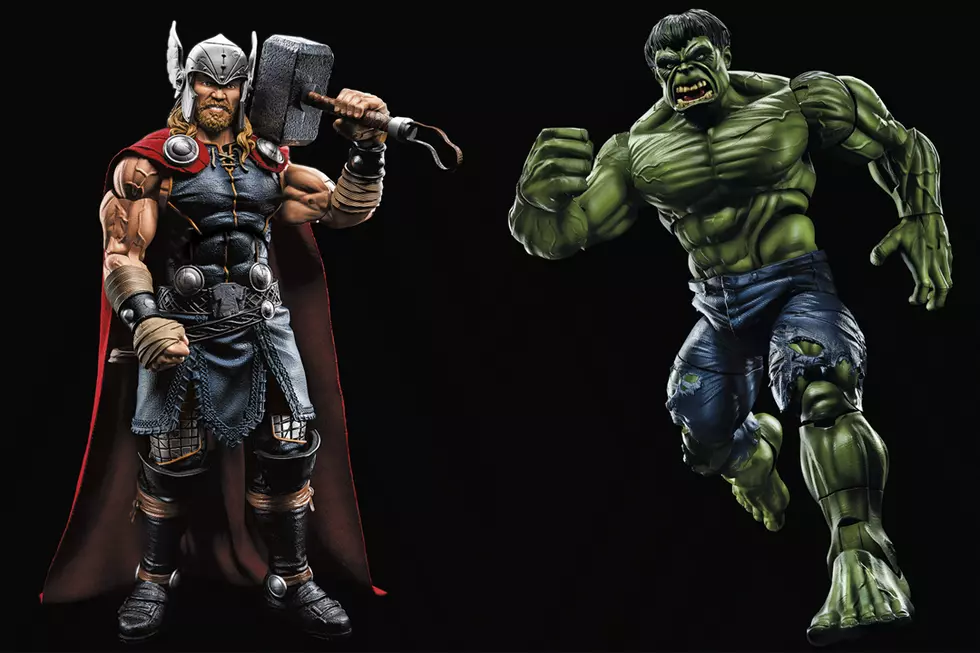
Hulk Smash Preconceptions: Peter David’s Epic Run on ‘The Incredible Hulk’

If you own Volumes 1 through 7 of Marvel's Hulk Visionaries: Peter David series, then it surely is a good week to be you, friend. Get this: there's a Volume 8, and it's out this week. I know, right? Champagne all around! Way to count, Marvel!
Though some of the choices in Marvel's Visionaries line of collections seem a little dubious, Peter David's run on The Incredible Hulk is not. Over the course of his decade-plus tenure on the title, David reshaped the inarticulate slab of the Hulk into an action-packed psychological study; Bruce Banner and his opposite were fully-realized characters locked in a fascinating tug-of-war that dragged the readers through studies of personality disorders and abuse. And it was hilarious.
Despite some truly great stories by Bill Mantlo during the height of the character's exposure, by the late eighties, The Incredible Hulk was a title nobody wanted. Poor sales, a moribund conceit, and the dictatorial nature of outgoing editor Jim Shooter soured whatever iconic qualities appealed to both readers and writers. In 1987 new editor Bob Harras offered the reins to David, a member of Marvel's sales team with a few stories under his belt. It's the now-classic situation in comics: a tarnished icon in need of a polish, so under the radar that when creators with fresh ideas come aboard, they're given the freedom to go wild.

David quickly cleared the table with a simple, striking shift of the color wheel, returning the Hulk from nuclear green to his original deathly gray. (Something a lot of folks don't know, when Hulk first appeared, he was gray, then went to green in the very next story. Coloring error or racial commentary? You decide.) Nowadays Hulks change color with alarming frequency, like they're auditioning for every Corps in the emotional spectrum, but back it 1987 it was pretty freaky. Lots of people dismissed it as a gimmick, but the change didn't end at skin tone.
 The Gray Hulk was smarter, meaner, more cunning than Green Hulk. No longer a dumbfounded toddler lashing out at the world, he became the sharp-tongued teenager no longer afraid of his dad. Mr. Fixit, as Gray Hulk came to be known, was clever, brash, and always looking for an advantage. Green Hulk was easily manipulated, but Mr. Fixit formed and broke alliances and played enemies against one another. If the Green Hulk was a manifestation of Bruce Banner's rage, Mr. Fixit came from a place even scarier, personifying Banner's ego, his greed, his primal desires for food and sex and conquest. As Banner's Gamma mutation continued to evolve, nighttransformation (again, part of the original Hulk) brought out the nerdy loner's dark opposite to inflict mayhem on anyone or anything that got in his way.
The Gray Hulk was smarter, meaner, more cunning than Green Hulk. No longer a dumbfounded toddler lashing out at the world, he became the sharp-tongued teenager no longer afraid of his dad. Mr. Fixit, as Gray Hulk came to be known, was clever, brash, and always looking for an advantage. Green Hulk was easily manipulated, but Mr. Fixit formed and broke alliances and played enemies against one another. If the Green Hulk was a manifestation of Bruce Banner's rage, Mr. Fixit came from a place even scarier, personifying Banner's ego, his greed, his primal desires for food and sex and conquest. As Banner's Gamma mutation continued to evolve, nighttransformation (again, part of the original Hulk) brought out the nerdy loner's dark opposite to inflict mayhem on anyone or anything that got in his way.
And yet Mr. Fixit was still somehow likeable. Funny, even. Maybe it was his very selfishness that appealed to fans, that fantasy version of themselves that got clever revenge on the mean old world. With a young Todd McFarlane penciling the bulk of the new stories, sales got back to a respectable level and continued climbing all throughout David's run, culminating in Hulk's popularity after his third transformation, with rocketing superstar Dale Keown on art, about ten years into the story.

The Hulk that emerged in the final years of David's story blended the best elements of each personality. Banner's intellect combined with the Green Hulk's power and Mr. Fixit's assertiveness. A man transformed, an adult who been to his darkest places and embraced them, and returned, at last, complete.
After a few years of New Hulk, though, Marvel brass pushed David to return to the Savage Hulk. David, who wasn't done telling stories of the complete Hulk, held his ground and was summarily cut from the title. They did, however, grant him a farewell story. The Incredible Hulk 467, beautifully illustrated by Adam Kubert, is probably still the best single issue David has written. Fueled by the emotions of his divorce, he wrote a future Rick Jones discussing what had happened to Bruce Banner after the death of Betty Ross. It's likely the definitive statement on the character.

If you love hilarious, action-packed, emotional stories of internal conflict in the nuclear age, Peter David's tremendous run on Hulk is required reading. If you're already taking out your issues on the world around you while hearing that haunting end-credits music in your head, don't worry about it.
More From ComicsAlliance




![Comics Alliance Rates The Avengers Hunks [Love & Sex Week]](http://townsquare.media/site/622/files/2017/02/marvelhunks-feat.jpg?w=980&q=75)




